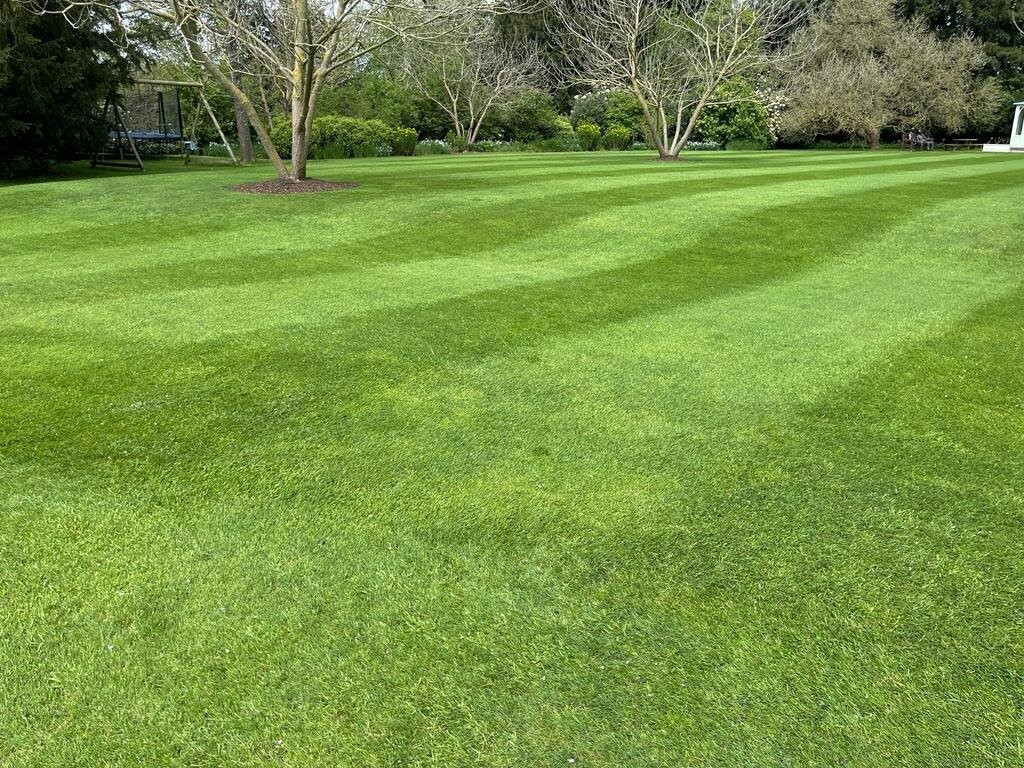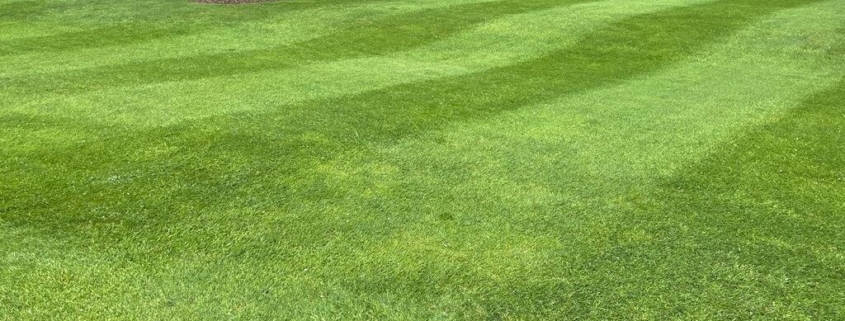Lawn Care – Time for a major rethink
The old concept of a ‘Perfect Lawn’ must go. And here’s why.
The iconic British lawn is immaculately trimmed, universally green and never turns brown. But not only is this NOT the lawn most people enjoy in their gardens; it is an archaic pipe-dream, completely at odds with promoting environmentally-responsible gardening now and in the future.


Lawn Care – Time for a major rethink
The lawn has a bad reputation for being un-green. But it’s completely unfair.
It is only the ultra-manicured lawns that consume huge volumes of precious water, fossil fuels, herbicides and chemicals to maintain their appearance. And this type of lawn should be the exception, NOT the norm, despite the impression given by aggressive product marketing.
Ordinary, healthy and robust lawns can be about as ‘green’ as gardening gets!
Our environmental priorities have changed, and lawn care certainly needs to adapt. But it can, easily, while still giving you a lawn to be proud of. Just make sensible choices when buying your lawn-care products.
- Cylinder mown lawns: why? A really short cylinder cut gives you a lawn that needs excessive herbicide use, watering and chemicals. A good battery-powered rotary can give you a really smooth cut – and just a few extra millimetres of height gives you much healthier grass.
- Organic fertilisers? Yes, please use these – but buyer beware! The word ‘organic’ is increasingly misused, for example to describe a fertiliser that is coated in polymer – plastic that will stay in the soil for generations. Proper organic feeds are now easy to find.
- Dwarf ryegrasses? No! First adopted to grow livestock feed and subsequently used in football pitches that are re-seeded annually, these are NOT sustainable. In a garden lawn, they require regular overseeding as they don’t spread, and need more frequent cutting – frankly all the help they can get! Not a sustainable option.
- Herbicides? Unnecessary. By using the right grass species – native bents and fescues – you can maintain a lawn that does most of the weed suppression itself. Just don’t tell the manufacturers…
It all comes down to education!
Everyone who loves lawns, from gardeners to designers and landscapers, can help to safeguard our lawns for the future by simply learning a little more about them. But don’t get your knowledge from product marketing – check your sources and learn from REAL experts. Just observing the tips above will transform your lawn care into a sustainable and environmentally friendly method.
The right grass, maintained in a sustainable and natural way, will give you a beautiful and high-quality lawn – but without costing the earth!
Our core mission at the Lawn Association is to make accurate lawn care information readily available via our website and through our Free Membership Scheme for gardening enthusiasts.
Go to the @LawnAssociation Facebook page to join the Lawn Enthusiasts Group, and get free association membership via the website, www.lawnassociation.org.uk
For the latest industry news visit landscapingmatters.co.uk/news
Get all of the big headlines, pictures, opinions and videos on stories that matter to you.
Follow us on Twitter and Instagram for fun, fresh and engaging content.
You can also find us on Facebook for more of your must-see news, features, videos and pictures from Landscaping Matters




